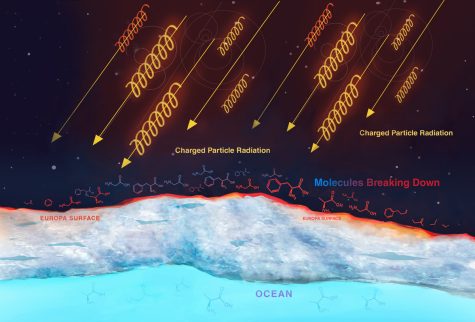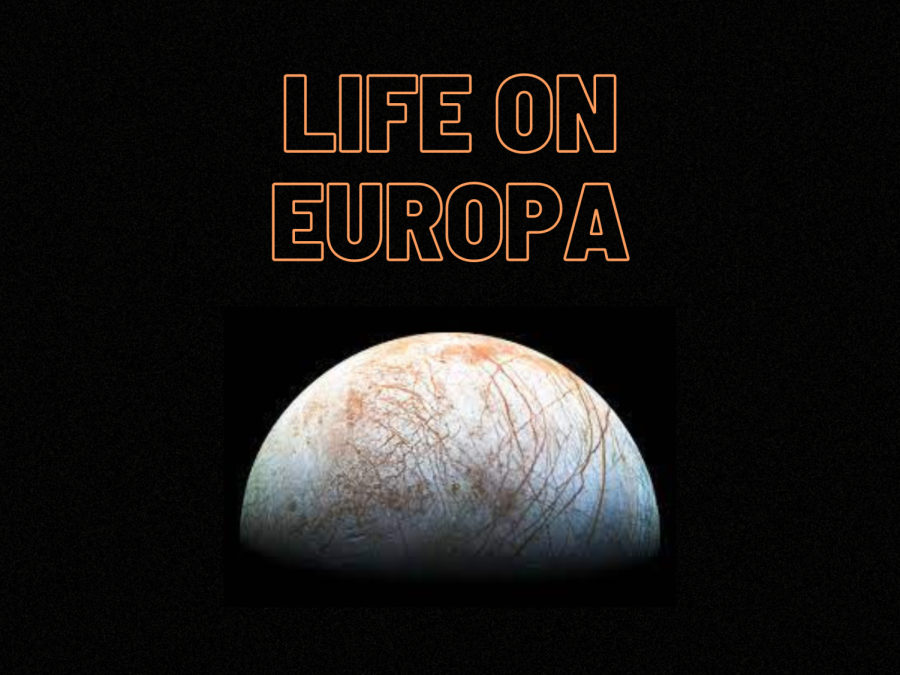Life on Europa
Scientists ponder over the possibility of life in other parts of the universe. With the discovery of possible life on Europa, Jupiter’s fourth-largest moon, scientists at NASA wasted no time and decided to send a probe to look for life that will launch in 2024. The discovery of life on another celestial object rather than the Earth would act as the discovery of the century.
May 24, 2023
The variety of life in the universe continues to act as a familiar theory, but scientists may prove society correct. The Goldilocks Zone acts as a place where life may theoretically exist in other parts of the universe. One of Jupiter’s 95 moons, Europa, scientists believe, holds the Goldilocks Zone that will only take three years to fly to.
Europa stands as an ocean world made up of a thick crust layer of ice with a vast ocean underneath. Scientists look for chemistry, water and energy when they look for places suitable for life, as those act as the ingredients for life. Europa’s age also contributes to the theories of life on Europa, as life takes time to develop and evolve.
The Europa Lander project Nautical Aeronautic Space Administration (NASA) will scan Europa to find life. The project will launch in 2024, and arrive by 2027, three years later. The probe will dig through a thick layer of ice to the vast ocean underneath, then send a squid-like rover to explore the ocean and search for life.

“Europa has been surveyed by NASA for decades but it wasn’t until we recently gained knowledge of potential for life a few years ago. I’m excited for their probe to arrive in Europa because it would be so interesting to see and learn and see what alien life acts and looks like,” North Cobb graduate Jake Blevins said.
Even if only bacterial life, scientists believe in high chances of life on Europa. High volcanic activity on Europa could provide a form of energy, similar to how Plankton on Earth thrive near underwater volcanoes eating the debris and primordial soup created by the volcanoes. The large ice crust of Europa also aids Europa by providing a natural blanket against charged particle radiation from the Sun, allowing the ocean to decontaminate.
“I’m not too involved with space and learning about space, but watching all of those Hollywood movies and seeing aliens in movies really piqued my interest to be able to see alien life in real life, not just in movies. Even if it is not intelligent life, just knowing life exists in a different part of space would be very fascinating,” Freshman Victor Woodall said.
Scientists theorize the possibility of sending controlled squid-like rovers and machines to explore the oceans of Europa and the chemical conditions present underneath the thick crust of ice. NASA already flies Europa Clipper, a large satellite that does detailed scans of the moon, around the moon.
Space enthusiasts feel excited about the idea of life in another area of the solar system. NASA and other space administrations cannot wait for the findings NASA will make on Europa in 2027 with the Europa Lander project.






